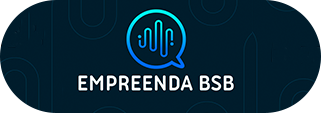The student of the Professional Master's Degree in Public Administration at IDP, Paula Ramalho, published together with professor Márcio Oliveira the article “Impacts of the New Fiscal Regime on the Superior Court of Justice: A Forecast Based on the History of Budget Execution” in the magazine Cadernos de Public Finances.
The article makes an in-depth prognosis of the effects of the New Fiscal Regime, introduced by Constitutional Amendment 95/2016, on the STJ's budget based on the analysis of time series of its budget execution between the years 2019 to 2019. The analysis in the article demonstrates a growing trend and above the STJ's mandatory expenditure readjustment limit, highlighting the importance of the savings efforts undertaken by the body.
We talked a little with Paula about her career and published work, read below:
EGEN - Tell us a little about yourself and your professional/academic trajectory.
Paula - Ká, during Business Administration I became interested in the subject of public finances, in particular, the public budget as a planning tool. His professional career followed the same line of interest, currently completing 10 years of experience in the area of budget management at the Superior Court of Justice.
EGEN - Tell us a little about your experience in the IDP master's degree, what motivated you to choose this program.
Paula - The public budget has been changing rapidly and the implementation of the Spending Cap generated a series of doubts that motivated me to carry out more in-depth research. In this context, the IDP professional master's degree emerged as an ideal opportunity to diversify and deepen my knowledge from a program with a professional focus and teachers with technical experience and work in leading institutions in public management.
EGEN - How would you summarize your article in 1 paragraph and using all the keywords?
"New fiscal regime; spending cap; time series forecast, Holt-Winters model, Superior Court of Justice"
Paula - The implementation of the spending ceiling (New Fiscal Regime) was accompanied by the hypothesis that the persistent growth in mandatory expenses will restrict discretionary expenses to critical levels. My study evaluates this hypothesis within the scope of the Superior Court of Justice (STJ). To this end, it analyzes budget execution time series from 2010 to 2019 and forecasts the data until 2026 by applying the additive Holt-Winters triple exponential smoothing statistical model. The data demonstrated that mandatory expenses must confirm the expectation of growth above the limit readjustment level, compressing funding and investment. This advance is being supported by the STJ's economic efforts which, so far, have proven to be efficient and are expected to intensify until 2026.
EGEN - What are the 3 main reflections that can be obtained from this work?
Paula -
1- The feasibility of using quantitative models to forecast time series of budget execution
2- The capacity of judicial bodies to carry out studies on their budgets
3- The annual forecast of the amounts available for discretionary expenses, based on the scientific method, supporting the planning and prioritization of the body's demands.
To read the work in full, click here .







